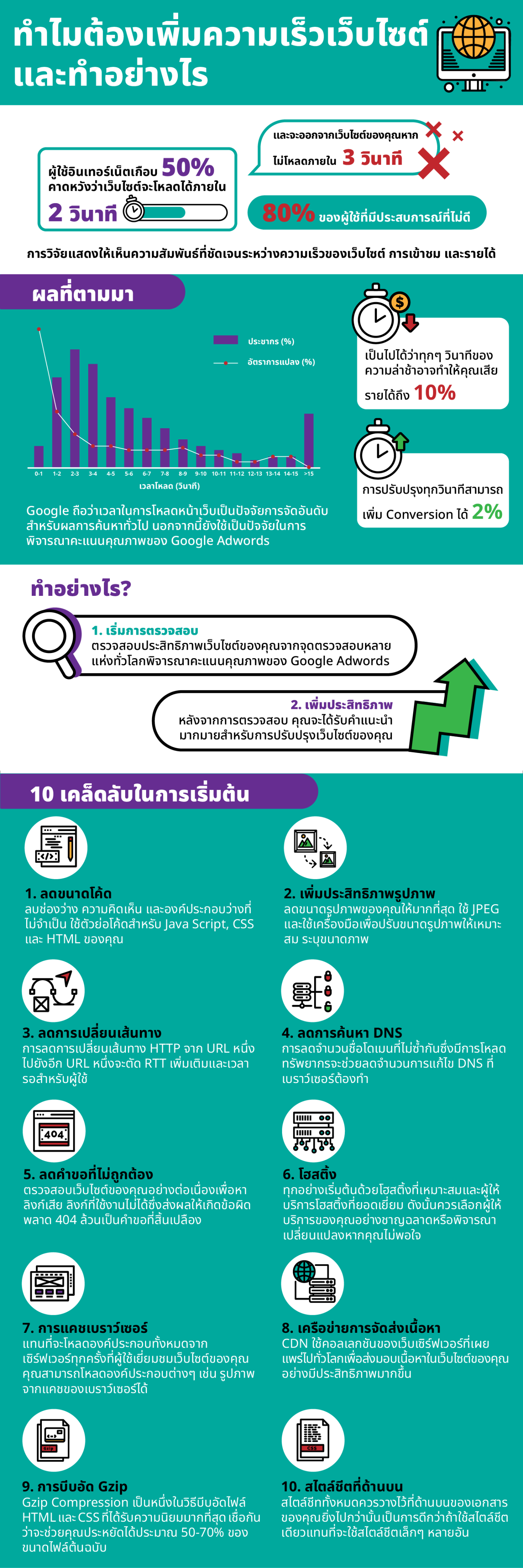
Why speed up your website and how to do it?
2023-11-09 01:19:57

Why speed up your website and how to do it?
Nearly 50% of internet users expect a website to load within 2 seconds.
And it will exit your website if it doesn't load within 3 seconds.
80% of users had a bad experience
Research shows a clear relationship between website speed, traffic, and revenue.
Consequences
It is possible that every Second of delay can cost you up to 10% of your revenue.
Every second improvement can increase conversions by 2%.
Google considers page loading time to be a ranking factor for organic search results. It is also used as a factor in determining Google Adwords Quality Score.
how?
1. Start checking
Monitor your website's performance from multiple checkpoints around the world.
2. Increase efficiency!
after inspection, You will receive many suggestions for improving your website.
10 tips to get started
1. Reduce code size
Remove unnecessary spaces, comments, and blank elements. Use code shorteners for your JavaScript, CSS, and HTML.
2. Optimize images
Reduce the size of your image as much as possible. Use JPEG and use tools to optimize the image size. Specify the image size.
3. Reduce redirects
Reducing HTTP redirects from one URL to another cut additional RTT and wait times for users.
4. Reduce DNS lookups
Reducing the number of unique domain names that load resources reduces the number of DNS resolutions that browsers must make.
5. Reduce invalid requests
Constantly check your website for broken links. Broken links that result in 404 errors are just wasteful requests.
6. Hosting
It all starts with the right hosting and a great hosting provider. So choose your provider wisely or consider changing if you are not satisfied.
7. Browser caching
Instead of loading all the elements from the server every time a user visits your website. You can load elements such as images from your browser's cache.
8. Content Delivery Network
CDNs use a collection of globally distributed web servers to deliver your website's content more efficiently.
9. Gzip compression
Gzip Compression is one of the most popular ways to compress HTML and CSS files. It is believed to save you about 50-70% of the original file size.
10. Style sheet at the top
All style sheets should be placed at the top of your document. Moreover, It is better to use a single style sheet rather than multiple smaller style sheets.
Leave a comment :
Recent post

2025-01-10 10:12:01

2024-05-31 03:06:49

2024-05-28 03:09:25
Tagscloud
Other interesting articles
There are many other interesting articles, try selecting them from below.

2024-03-25 01:42:28

2023-09-29 10:22:30

2024-02-21 05:04:05

2024-10-10 11:35:58

2024-08-26 10:14:36

2024-09-10 01:19:13

2023-10-30 04:53:34

2024-09-17 10:44:19

2024-09-25 04:48:42
